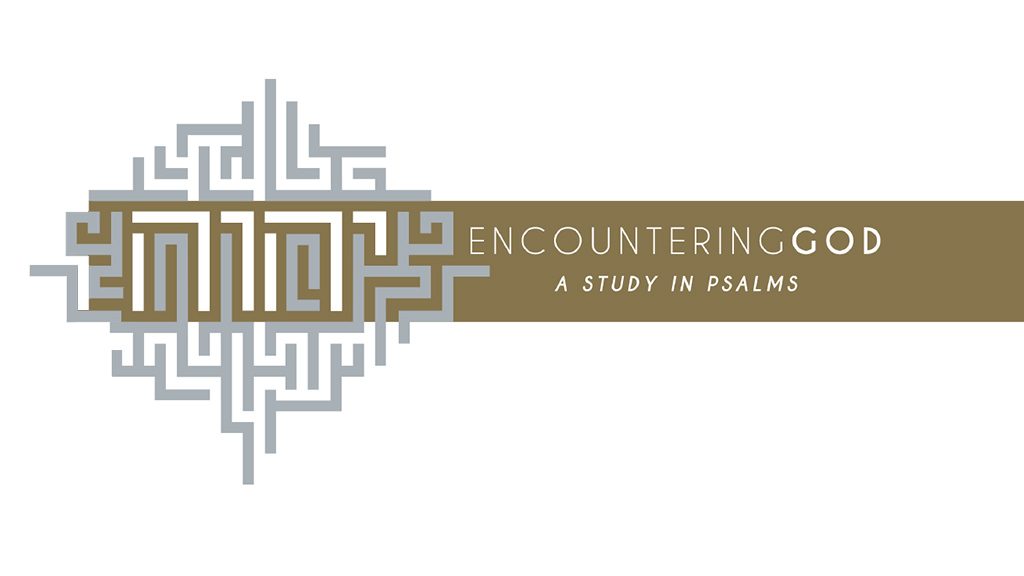The title of Psalm 100, “A Psalm of praise,” is unique. No other psalm begins this way. Therefore, Psalm 100 reveals a special emphasis for God’s people.
Some writers have suggested that this psalm was sung at the time when thank offerings were being made during temple worship. These thank offerings were expressions of gratitude to God for His special deliverance and protection. Thank offerings accompanied peace offering sacrifices (Lev. 7:11–12) that were to be eaten with the priests as fellowship meals in the temple (Lev. 3:3–5).
Offer unto God thanksgiving; and pay thy vows unto the most High: And call upon me in the day of trouble: I will deliver thee, and thou shalt glorify me. (Ps. 50:14–15)
Others have suggested that this psalm was sung by pilgrims in a procession as they were going to the temple in Jerusalem during religious festivals. This procession continues today when young Jewish men in Jerusalem coming from a yeshiva sing in a procession as they make their way to the Kotel (Western Wall) for Shabbat (Sabbath) prayers.
In either case, whether it’s during an offering or a procession, Psalm 100 serves to instruct us in the art and the heart of worship. A.W. Tozer described worship as “the missing jewel in the church.” He went on to say, “God wants worshipers before workers; indeed, the only acceptable workers are those who have learned the art of worship.”[1]
The focus of our worship according to Psalm 100 is the Lord Himself. We are to come into His presence for His sake alone. Worship is not about us. Worship is not a means to an end. It is an end in itself. It’s all about God! We will never get “church” right if we don’t get worship right. The church gets off track when worship is no longer the engine that drives it.
So how do we appropriately worship God? The author gives seven divine imperatives that direct our approach to God in worship.
Shout
Psalm 100:1
Make a joyful noise unto the Lord, all ye lands.
Dan Forrest, acclaimed composer of choral works, masterfully composed the text of Psalm 100 into seven different languages. The title of his work, Jubilate Deo, comes from the opening phrase of the psalm in Latin—“O be joyful in the Lord.” The Latin word jubilate means to shout for joy! What kind of shout is this? It is the fanfare and celebration that takes place in the presence of the king.
And Samuel said to all the people, See ye him whom the Lord hath chosen, that there is none like him among all the people? And all the people shouted, and said, God save the king. (1 Sam. 10:24)
Why would we shout? Because of our loyalty to the King who rules over all.
Make a joyful noise unto the Lord, all the earth: make a loud noise, and rejoice, and sing praise. Sing unto the Lord with the harp; with the harp, and the voice of a psalm. With trumpets and sound of cornet make a joyful noise before the Lord, the King. (Ps. 98:4–6)
Because God rules over all, the psalmist summons all nations to shout to the Lord.
Worship
Psalm 100:2
Serve the Lord with gladness.
The word serve means to work. In other words, there is effort involved in worship. For example, God commanded the Jews to keep the Passover every year. Though it was a time of worship, it was also called service.
And it shall come to pass, when ye be come to the land which the Lord will give you, according as he hath promised, that ye shall keep this service. (Exod. 12:25)
Service continues to be part of the spiritual worship of New Testament believers, because we devote our bodies—in other words, our entire beings—to live for God’s glory.
I beseech you therefore, brethren, by the mercies of God, that ye present your bodies a living sacrifice, holy, acceptable unto God, which is your reasonable service [spiritual worship]. (Rom. 12:1)
We are to serve with gladness unto the Lord. This is worship! A joyful God is glorified by joyful servants. We have to remind ourselves that everyday tasks are part of how we serve God, and that we can truly serve Him only with abundant joy and cheerfulness. Not only must we worship God joyfully when we gather as the church, we must worship Him joyfully all the time.
In contrast, those who do not serve God with gladness eventually demonstrate that they are not His servants at all. Time and again Israel failed to serve God with gladness and incurred His judgment.
Because thou servedst not the Lord thy God with joyfulness, and with gladness of heart, for the abundance of all things; therefore shalt thou serve thine enemies which the Lord shall send against thee. (Deut. 28:47–48)
Come
Psalm 100:2
Come before his presence with singing.
This parallel thought to the first phrase in verse two focuses on corporate worship. We are to gather together with loud, joyful singing to God.
Let us come before his presence with thanksgiving, and make a joyful noise unto him with psalms. For the Lord is a great God, and a great King above all gods. (Ps. 95:2–3)
God clearly prescribes music as an aspect of worship. Therefore, we should carefully weigh our musical forms in light of His nature. Specifically, is our music filled with joy? These first three commands—shout, worship and come—are accompanied with joy, gladness and joyful singing. God’s people cannot worship Him without singing joyfully.
Know
Psalm 100:3
Know ye that the Lord he is God: it is he that hath made us, and not we ourselves; we are his people, and the sheep of his pasture.
To know is to be intimately familiar with another person. True worship displays an experiential relationship with the only true God. His status is exclusive. He is the only One who fits the category of God. The keystone verse in ancient Israel was Deuteronomy 6:4: “Hear, O Israel: The LORD our God is one LORD.”
Our God is both transcendent and immanent—far greater than we can imagine, yet much nearer than we realize. He is our Creator and our Shepherd. We are His people by creation and His sheep by redemption. In both ways God sovereignly claims us as His own.
Enter
Psalm 100:4
Enter into his gates with thanksgiving, and into his courts with praise.
Jerusalem was the place where the Jews were commanded to worship God. Thousands of pilgrims would ascend to the holy city in order to worship at the temple during their annual feasts. As the groups of worshipers entered into the city, they would walk through the golden gate with loud shouts of thanksgiving. As they made their way up to the Temple Mount, they would enter into its large courtyard with songs of praise.
Give Thanks and Praise
Psalm 100:4
Be thankful unto him, and bless his name.
The final two commands are simple yet clearly focused. The word thanksgiving is rooted in the idea of throwing or casting. We are to throw verbal confessions of thanksgiving on God. Though the context of this psalm is corporate worship, the New Testament emphasizes that thankful worship is our duty continually. As Paul says in 1 Thessalonians 5:18, “In everything give thanks: for this is the will of God in Christ Jesus concerning you.”
By him therefore let us offer the sacrifice of praise to God continually, that is, the fruit of our lips giving thanks to his name. (Heb. 13:15)
The word bless in Hebrew means to kneel down and bless God. We bless Him—or in other words, we give Him honor—because He has blessed us. Gratitude turns to blessing. Sometimes we picture worship as unfettered emotion. As noted above, true worship certainly is joyous. But it also is infused with humble gratitude and dignified honor.
Conclusion
After exhorting us in seven different ways to praise the Lord, the psalmist concludes by telling us why we should engage in such intense worship. It is because of who He is!
Psalm 100:5
For the Lord is good.
The Lord is good! He is benevolent toward His children. He wants what is spiritually and morally best for us and blesses us with His gifts. In fact, “Every good gift and every perfect gift is from above, and cometh down from the Father of lights, with whom is no variableness, neither shadow of turning” (James 1:17).
Psalm 100:5
His mercy is everlasting.
God’s mercy is His loyal covenant love. The Lord has bound Himself to us in an eternal covenant rooted in His eternal love for us and expressed through the saving work of His Son and Spirit.
Psalm 100:5
And his truth endureth to all generations.
God’s truth refers to His trustworthiness. God is faithful to His promises from generation to generation. What He promised in the past He will perform in the present and for eternity!
[1] A.W. Tozer, That Incredible Christian: How Heaven’s Children Live on Earth, comp. Anita M. Bailey (Camp Hill, PA: WingSpread Publishers, 2008), 37.
Listen to Dr. Pettit’s chapel message on Psalm 100:
Join us for chapel every Monday through Thursday at 11 a.m. EST.








